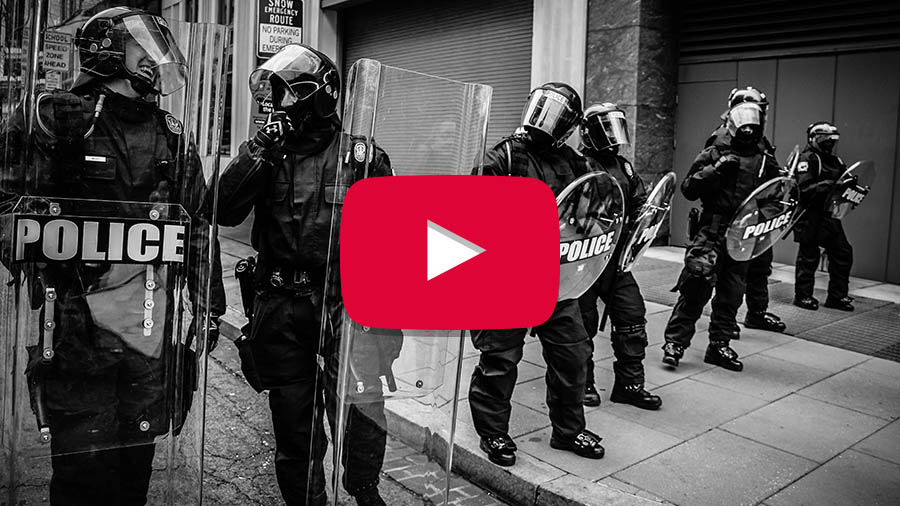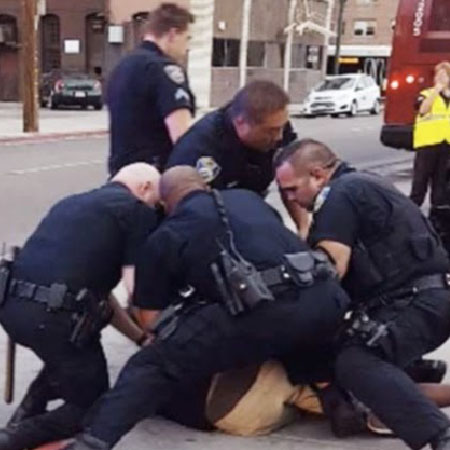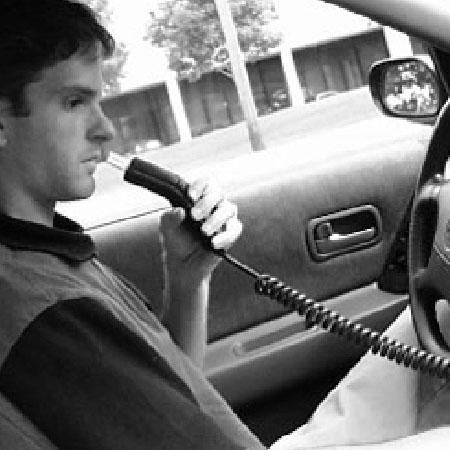If you are convicted of any of the “resisting arrest” crimes listed below, you are facing the prospect of being considered a HIGH-RISK STOP every time you get behind the wheel for the rest of your life.
As part of their S.O.P. (Standard Operating Procedure), police officer run the plates of any vehicle before approaching it and ask for the driver’s license (even if you are only a passenger).
Once the police run your name through their on-board computer system and find out you have a prior conviction for any type of resisting/evading arrest or battery on a cop, they call in multiple backup units for their “safety”.
They will then order you out of your vehicle and “assume the position” (spreadeagled on the ground with your hands behind your neck) at gunpoint, “swarm” you with multiple cops holding your arms and legs down in painful positions to the point of breaking your limbs before handcuffing you. In some instances, they will call out a K-9 (dogs) unit to further assist.
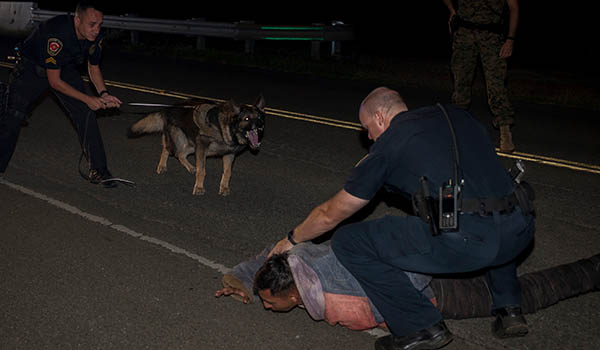
There are multiple defenses available to PC 148.5, VC 69, VC 2800.1/2800.2 charges that a highly skilled and experienced criminal defense attorney like Mr. Karas can use to defend you against Resisting Arrest charges.
Also, if you are arrested, you have the right to sue to the police if during the course of being arrested you sustain injuries as a result of any of the following techniques police use (and abuse) on a routine basis:
- Choke holds/take-downs: Some departments forbid certain tactics, but some officers take things too far. Was the technique legal? Was it necessary or because they felt like it?
- Crowd control: Police policy regarding indiscriminate use of rubber bullets or tear gas on crowds or protesters.
- Handcuffs: We’ve seen cases where handcuffed suspects suffering severe facial injuries when thrown to the ground or streets.
- Pepper Spray: Why did they use pepper spray? Did pepper spray get in the mouth or nose intentionally? Did officers let up when citizen showed obvious respiratory distress?
- Police Batons: Did the officers follow procedure (e.g., no blows to the head)? Did the police stop once subdued? Did they break any bones?
- Tasers: The powerful electrical charge can change heart rhythm and cause heart attacks. Were there any signs of overuse? Was the person posing a real threat? How many times? Were handcuffs on?
If you have suffered serious bodily injury as the result of police brutality, or have experienced the wrongful death of a loved one as a result of police misconduct/excessive force, contact the Law Office of John Karas.
Mr. Karas is one of the few attorneys in the entire state who specializes in resisting arrest cases (see Results section regarding his track record) and files lawsuits (licensed to practice in both state and federal courts) against police departments and/or/individual police officers for police misconduct (excessive force, brutality) to keep the police in check and get monetary compensation for you as a result of injuries inflicted by “cops gone bad”.

Contrary to popular belief, Resisting Arrest does NOT require the specific intent to resist, delay or obstruct a police officer.
Resisting Arrest is a general intent crime. All that the DA has to prove is that you intended to commit an act (for example, run or walk away from/toward a police officer with the result being that you delayed, obstructed or resisted their official acts).
Penalties:
Resisting arrest is a misdemeanor. The penalties for resisting arrest may include up to one (1) year in a county jail and/or a maximum one thousand dollar ($1,000) fine.
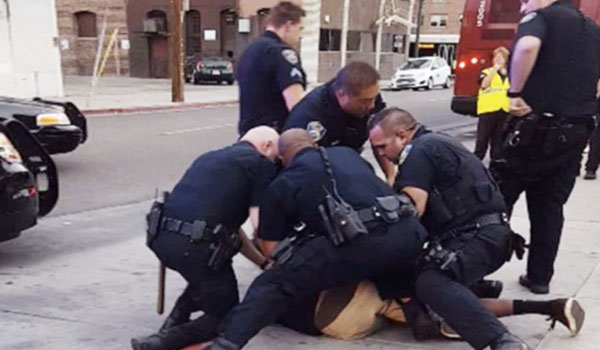
Obstructing or resisting executive officers is a “wobbler” meaning that it can be charged as either a misdemeanor or a felony.
Penalties:
If charged as a misdemeanor, you are facing up to one (1) year in a county jail and/or a maximum one thousand dollar ($1,000) fine.
If charged as a felony, you are facing 16 months, 2 or 3 years on county jail, and a fine of up to $10,000.
The crime of evading arrest is actually two separate offenses.
The first (Vehicle Code 2800.1) is misdemeanor evading arrest. This law makes it a crime to willfully flee a pursuing police officer in a car with intent to avoid being apprehended.
This form of evading arrest is a misdemeanor punishable by up to one (1) year in county jail and a fine of up to one thousand dollars ($1,000). In addition, the vehicle you used to alleged evade an officer can be impounded for up to 30 days.
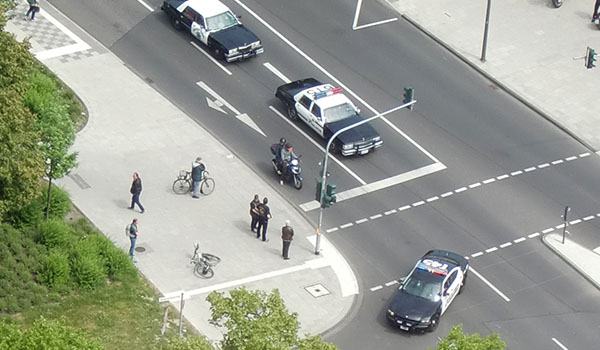
The second type of “reckless evading” is a felony (Vehicle Code 2800.2)
This law prohibits you from fleeing a police officer in your car and driving recklessly that shows a serious disregard for the safety or property of others.
Penalties:
This offense is a “wobbler” meaning it can be charged as a misdemeanor or as a felony with a potential state prison sentence.
If the act of evading an officer causes serious bodily injury, the potential California penalties include 3, 5 or 7 years in state prison. If you evade an officer and cause the death of another person, the potential penalty increases to 4, 6 or 10 years in state prison.
If you willfully evade an officer in your car, you are arguably resisting, delaying, or obstructing the officer in the performance of his/her duties so you can be charged with Penal Code 148(a)(1) PC resisting arrest as well.
Frequently, even though YOU are the victim of police misconduct (excessive force/brutality) by 1 or more cops wearing a badge under color of authority, you may be charged with Battery on a Peace / Police Officer (while being beaten, kicked , pistol whipped, etc. if the police officer suffers any injury while inflicting “street justice”.

Penalties:
If the battery on a police officer causes an injury requiring medical treatment, then this crime becomes a “wobbler” meaning a crime that may be charged as a misdemeanor or a felony.
Battery on a peace or police officer is typically charged as a misdemeanor. The penalties are up to one (1) year in county jail, and/or a fine of up to two thousand dollars ($2,000).4
However, if the battery on a police officer causes an injury requiring medical treatment, then this crime is also a “wobbler”. If charged as a felony, the consequences for battery on a peace officer are a potential sentence of sixteen (16) months, 2 or 3 years in jail, and a fine of up to $10,000.

